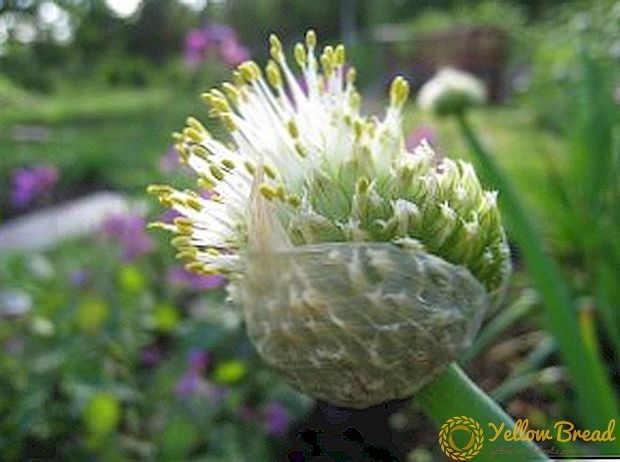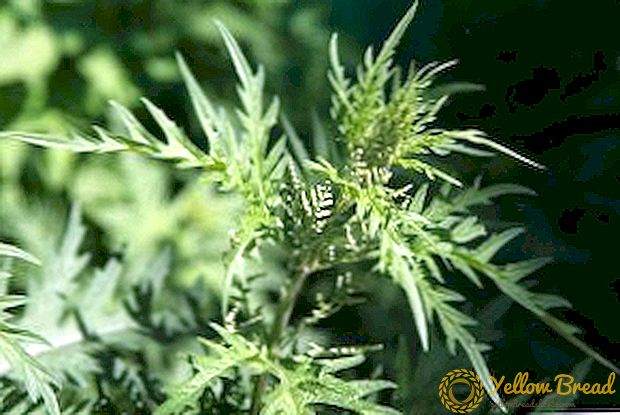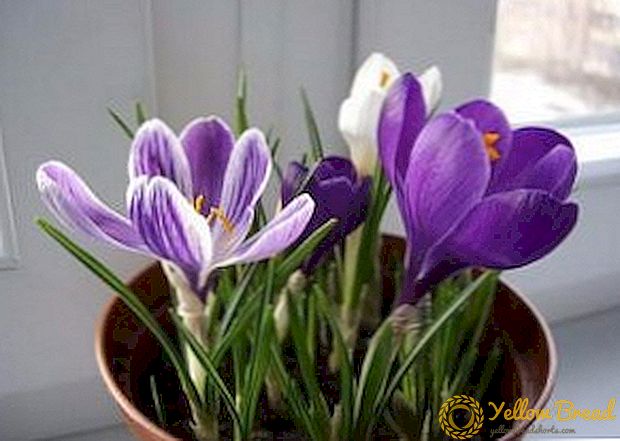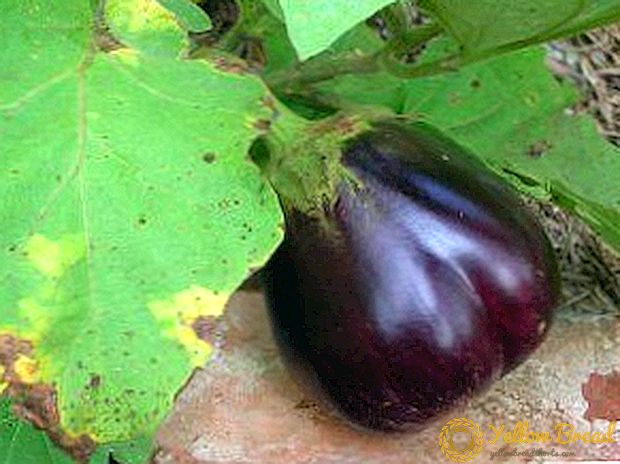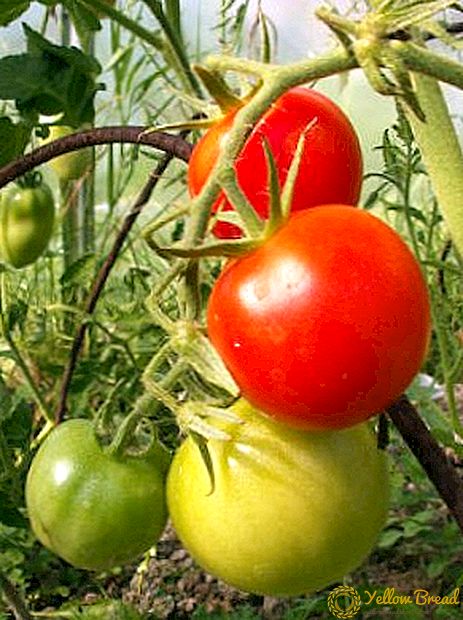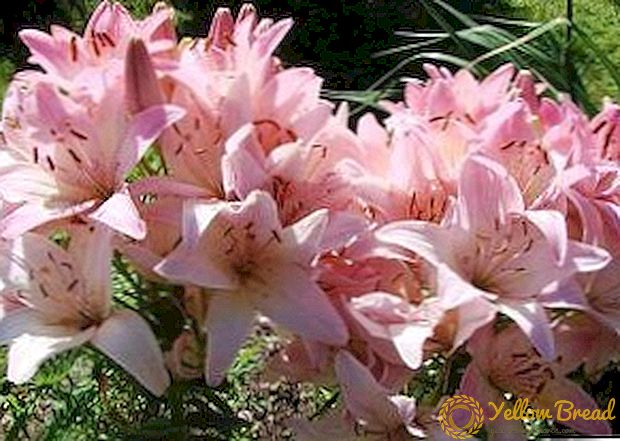 Rose "Pierre de Ronsard" is one of the leading places in the encyclopedia of roses. This is truly a royal variety, bred in France by "Mielland".
Rose "Pierre de Ronsard" is one of the leading places in the encyclopedia of roses. This is truly a royal variety, bred in France by "Mielland".
- Biological features
- How to choose healthy seedlings when buying: recommendations
- Choosing a landing site
- Site preparation
- Seedlings preparation
- The process and scheme of planting rose seedlings
- Care and fine points of cultivation
- Watering, loosening and weeding
- Fertilization
- The role of mulch
- Prevention of diseases and pests
- Support
- Pruning
- Shelter for the winter
- Use in landscape design
Biological features
Rose "Pierre de Ronsard" refers to climbing grades, is remontant. An adult bush can reach 3 meters in height, it grows to a width of 2 meters.  The plant reaches this size at the age of 3-4 years, as it does not differ in the intensity of growth. Flowers are large, 8-10 cm in diameter, full of (60-70 petals in the bud).
The plant reaches this size at the age of 3-4 years, as it does not differ in the intensity of growth. Flowers are large, 8-10 cm in diameter, full of (60-70 petals in the bud).
They have a color from cream to pale pink, often in the center of the bud the color is richer. Leaves hard, dense, shiny. Fragrance unexpressed, barely perceptible. Variety "Pierre de Ronsard" has such advantages:
- abundant and long flowering;
- high immunity;
- frost resistance.
How to choose healthy seedlings when buying: recommendations
When buying seedlings should pay attention to such aspects:
- Saplings are grafted and with its own root system. Specify the type of stock, as some can be grown only in greenhouses.
- Seedling age: give preference to two or three year old plants.
- Pay attention to the condition of the roots, the presence of spots on the leaves and stems.

Choosing a landing site
Since the rose is a perennial plant, the choice of the place of planting should be approached responsibly and selected carefully.
Site preparation
For planting, choose ventilated, well-lit areas that exclude drafts. The soil should be fairly loose.
It is necessary to dig up the earth, remove weeds and, if necessary, level the acidity.
Seedlings preparation
Now let's talk directly about how to plant a rose. Planted in open ground in spring. Seedlings carefully inspect, remove damaged shoots and roots. All sections are treated with a special tool, for example, "Rannet" or ordinary brilliant green. Before planting, the roots of seedlings are immersed in water with a root formation stimulator.
The process and scheme of planting rose seedlings
Climbing rose "Pierre de Ronsard" does not require much space, will be sufficient plot 50x50 cm. However, the crown of the bush is very large, so you can increase the landing pattern to 2x2 m.  In the wells make humus or manure, watered with water with magrant potassium. Fertilizers sprinkled with a layer of soil to avoid contact with the roots.
In the wells make humus or manure, watered with water with magrant potassium. Fertilizers sprinkled with a layer of soil to avoid contact with the roots.
Care and fine points of cultivation
Caring for "Pierre de Ronsard" is almost the same as caring for other roses, except that the variety requires a garter. 
Watering, loosening and weeding
Water about once every 10 days, pouring a bucket of water under the bush. It is not necessary to water more often, as excessive moisture can cause rotting of the roots.
It is necessary to monitor the condition of the soil, loosen it as necessary, weed from weeds.
Fertilization
In the question of how to care for roses, do not forget about fertilizers, especially this culture loves additional feeding.  In the spring they make nitrogen fertilizers, before flowering they can be fed with mineral fertilizers, by the end of flowering with potassium and phosphorus. In periods of flowering organic fertilizer is applied.
In the spring they make nitrogen fertilizers, before flowering they can be fed with mineral fertilizers, by the end of flowering with potassium and phosphorus. In periods of flowering organic fertilizer is applied.
The role of mulch
Mulching is an important development for the development of the rose bush: it helps enrich the soil with nutrients.
This is especially important if the soil in your area is not ideal for growing roses.Mulch also contributes to weed control.  All weeds are removed from the ground, then a layer of mulch (4-6 cm) is poured. After rotting it is mixed with the top layer of earth. Next, the process is repeated.
All weeds are removed from the ground, then a layer of mulch (4-6 cm) is poured. After rotting it is mixed with the top layer of earth. Next, the process is repeated.
As mulch, use shredded paper or cardboard, dry grass, manure, compost, sawdust, peat.
Prevention of diseases and pests
To prevent whips treated in the spring and before sheltering for the winter. The treatment is carried out with a 1% solution of Bordeaux liquid.
Support
For climbing grades, the presence of a support is imperative. It is necessary to arrange before planting a bush.  Form a support so that it does not create a shadow to the bush. You can use the existing trees on the site or build supports from bamboo branches.
Form a support so that it does not create a shadow to the bush. You can use the existing trees on the site or build supports from bamboo branches.
Pruning
Pruning is carried out after the end of flowering, as well as in spring. When pruned in autumn, old shoots are removed, and young ones are shortened by a quarter. Spring pruning involves the removal of damaged shoots.
Shelter for the winter
The question of how to care for roses, will not be revealed until the end, if we do not talk about shelter for the winter.Although this variety is considered to be frost-resistant, to guarantee the preservation of the bush, it is better to protect it from frost.  For "Pierre de Ronsard" this process is not easy, as it has very hard shoots that are almost impossible to bend. Cover the bush, mainly in a vertical way, pre-tying the bush with spruce branches.
For "Pierre de Ronsard" this process is not easy, as it has very hard shoots that are almost impossible to bend. Cover the bush, mainly in a vertical way, pre-tying the bush with spruce branches.
Use in landscape design
Due to its climbing ability and ability to grow upwards, Pierre de Ronsard is widely used in landscape design. It is used to decorate fences, arches, trees.  If there is a dry tree on your plot, you can plant a rose bush next to it, and in a few years a wonderful decorative element will appear - a flowering tree.
If there is a dry tree on your plot, you can plant a rose bush next to it, and in a few years a wonderful decorative element will appear - a flowering tree.
Rose "Pierre de Ronsard" has rave reviews from many gardeners, so we recommend you to make sure in your own experience of the positive qualities and beauty of this plant.

